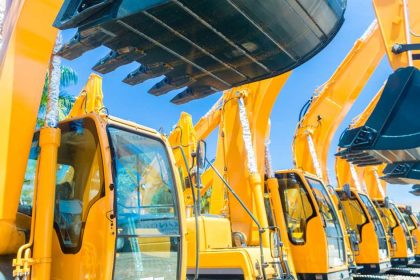Victorian renters will be slugged up to $65 extra per week in rent if the state’s proposed new energy efficiency standards for rental properties get the green light, research says.
The law changes are set to come into effect in October of next year and will force landlords to boost energy efficiency standards on all new rental properties and update end-of-life gas appliances to electrical devices.
The changes could see landlords fork out thousands of dollars to upgrade their rental properties’ ceiling insulation, door seals, shower heads, hot water and heating systems and provide minimum 3-star cooling systems in main living areas.
Analysis from independent economic advisory firm Frontier Economics says making these changes could slug some rental providers with up to $27,000 in additional costs should most of those changes be required.
Similar to the post-COVID interest rate rises, experts expect those costs to be passed on to renters, with up to 280,000 Victorian rental properties seeing an increase in rent of up to $65 per week.
That’s a rental increase of $3400 per year.
The Gas Appliance Manufacturers Association of Australia (GAMAA) have already made a submission to the Victorian Government to have the legislation stopped, saying the forecast costs to renters and landlords far outweigh the government’s estimated savings of less than $10 per week.
‘“We have a number of concerns with the proposed changes, but the greatest is that they fail to capture the real financial impacts on tenants and rental providers,” GAMAA president Ross Jamieson said.
“Frontier research has found the cost of gas to electric appliance conversion can be up to 12 times higher than the average cost reported in the RIS. In particular, the RIS seriously underestimates the cost of the necessary electric power supply upgrades.
“This will lead to detrimental outcomes for tenants in rental properties with gas appliances.”

Mr Jamieson says changes could also hurt rental supplies if investors choose to sell up rather than pay up, and with vacancy rates already hovering around 1 per cent, this could further drive up the price of rents.
“The additional costs that would be forced on to rental providers is also likely to result in withdrawal of rental properties from the market at a time when many Victorian families are finding it hard to secure a rental property and make ends meet,” he said.
“If these proposals go ahead, they will simply end up hurting the people the government is trying to support at a time they can least afford it.”
Renters approve energy efficiency changes
However, despite how much the proposals could potentially lighten their wallets, last week, Build-it revealed that most renters are, in fact, in favour of the proposed energy efficiency changes.
Research by renewable energy transition service Green.com.au showed 81 per cent of Aussies surveyed supported the move, with 9 out of 10 renters supporting the measures.
Green.com.au CEO and co-founder David Green told Build-it landlords shouldn’t despair at the proposal, which he says will boost both their property’s rentability and market value.
‘Upgrades that improve the energy star rating of a property are likely to attract more buyers and renters, plus higher premiums,” he said.
“At the point of sale, properties with a 7-star rating are fetching as much as 9.4 per cent more, while rental properties with a five or 6-star rating get up to 3.6 per cent more in rent than a less energy efficient property.”

Mr Green also pointed out that most rental properties would not require a complete overhaul of their insulation and gas appliances only when these items had reached the end of their life cycle. However, it was something future renters would likely be seeking.”
“The cost of making the required changes will vary enormously and depend heavily on whether a property is in a metro or regional area, the availability of qualified
tradespeople in those areas and whether a property owner is eligible for Government
installation programs, rebates and subsidies.” he told Build-it.
“Our research sends a strong message to rental providers: adapting to these reforms is not just about compliance, but about aligning with the values of the next generation of renters who prioritise sustainability.”
“For the Victorian Government and other governments considering similar reforms, these findings indicate broad public backing for expanding these standards nationwide. Implementing them can help Australia’s emissions goals and at the same time enhance property values and tenant satisfaction across the board.”
However, Mr Jamieson says the best way to improve energy efficiency standards while keeping costs to landlords and renters low is through the better utilisation and upgrade of existing gas appliances rather than a phase-out.
“If the Government simply included an option for the replacement of gas appliances that have reached the end of life with high efficiency (5 Star or higher) gas appliances, tenants would see lower costs, better performance and lower emissions – a commonsense win-win solution for all,” he said.







